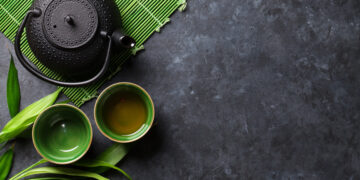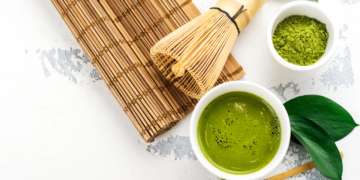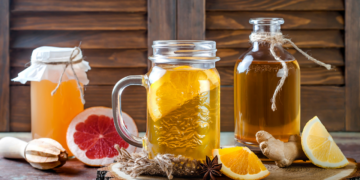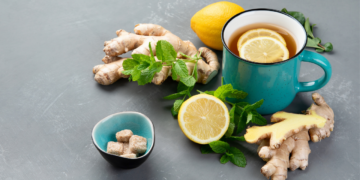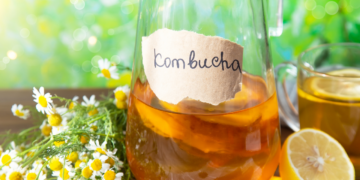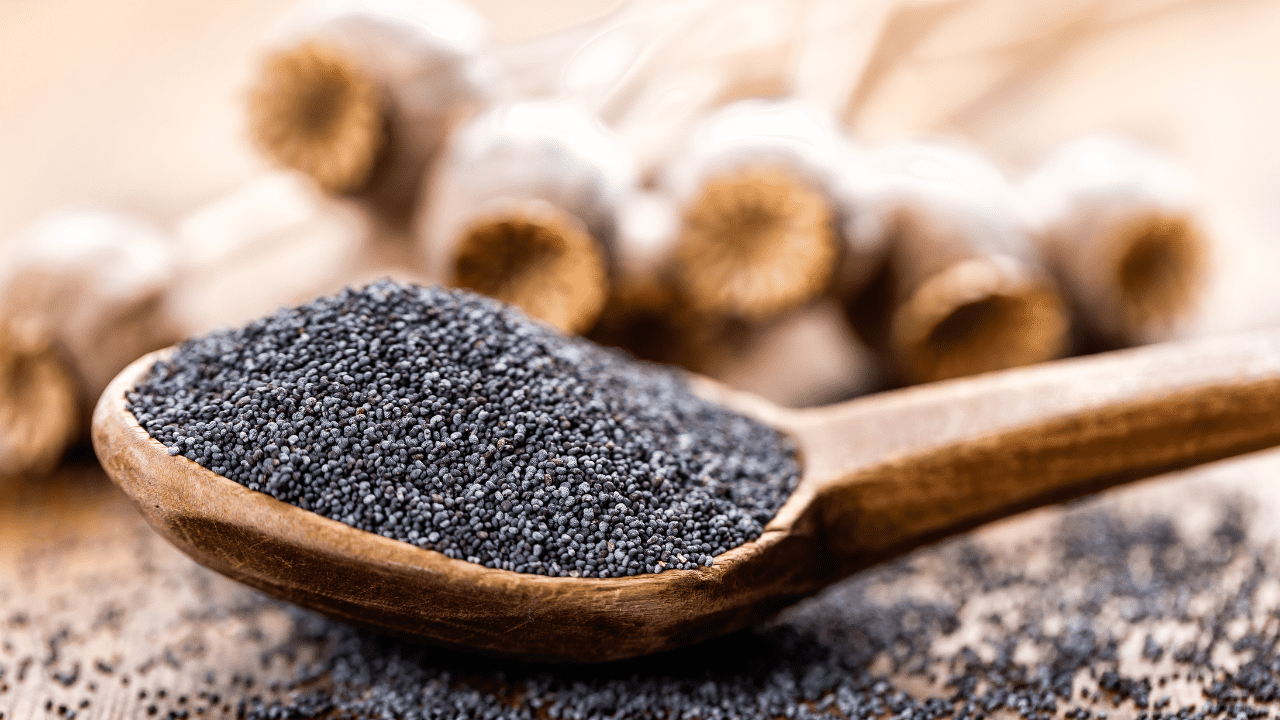Tea is one of the healthiest drinks on the planet. It contains antioxidants and vitamins that offer a variety of health benefits. For many people, drinking tea is part of their daily routine. But what is the healthiest tea you can drink daily?
White tea is arguably the healthiest tea you can drink with green tea a close second. White tea is the least altered tea and is made with leaves that are immediately plucked and sun-dried. It is tea in the purest form, with the highest antioxidants and lowest caffeine.
But this doesn’t mean you should completely ignore other teas and drink white tea exclusively. There are a lot of healthy teas out there. In this article, we will explore the healthiest teas you can find on the market and learn more about white tea. Let’s dive into the world of teas together.
What Is Tea: True Tea Vs Herbal Tea
True teas are black tea, Pu-erh tea, green tea, white tea, and oolong tea. They are considered true teas because they all come from the same plant, Camellia Sinensis. The difference between these teas is how they are processed and oxidized to bring out certain flavors and components in the leaves.
Herbal teas are technically not natural teas but rather infusions. Most herbal teas come from dried fruits, flowers, and other herbs and spices. Teas made from these infusions also have a more varied flavor and are often caffeine-free. They could be an alternative to sugary drinks and are perfect for cutting down their caffeine. Famous examples of tea like this are peppermint tea, ginger tea, or hibiscus tea.
They still offer many health benefits of their own. Peppermint tea freshens your breath and helps with digestion. Ginger tea calms an upset stomach, while Hibiscus tea can help manage blood pressure! Herbal teas contain lower amounts of antioxidants and catechins than true teas despite these positive health benefits.
Our Winner: White Tea
White tea is arguably the healthier tea to drink daily because white tea is Camellia Sinesis in its purest form with minimal processing or manipulation. As a result, white tea has the highest concentration of antioxidants.
Studies have shown that white tea is antibacterial. It can ward off pneumonia, streptococcus, and staphylococcus infections. This fluoride-rich white tea can even prevent tooth decay can halt dental plaque.
White tea leaves are plucked from the Camellia Sinensis plant and sun-dried immediately. It is the least altered tea as it is not oxidized and does not require microbial fermentation. As a result, white tea is a light yellow color and has a mild taste. The tea leaves’ specific origin can affect the tea taste as some variations are fruity while others may be spicy. For example, Silver Needle white tea is made from the flowers and buds of the Camellia Sinensis plant, while White Peony is from the top two leaves and buds.

1. Lowest Amount of Caffeine
White tea has the least amount of caffeine among the true teas. An 8-oz cup of white tea has around 15 mg of caffeine, compared to 20 mg of green tea.
Despite having the least amount of caffeine than the other true teas, white tea can help you stay awake and alert. This effect occurs because of the high polyphenol content, which can ward off fatigue, lower blood pressure and cholesterol. Polyphenols are chemicals from plants, often found in teas, act as antioxidants, and offer many health benefits.
2. Protective Against Certain Cancers
Studies have shown that it can protect against cancer. The Oregon State University found that white tea can be almost as effective as drugs like Sulindac. The study looked at preventing colon cancer in lab mice predisposed to this kind of cancer.
Mice that were given green tea saw a reduction in tumor incidence from 30 to 17, whereas the mice receiving white tea had 13 tumors, down from 30. The mice that received white tea and Sulindac appreciated a significant reduction in tumor incidence, dropping by 80% from 30 tumors down to 6. Although this research does not always yield the same results in human trials, the study is promising.
3. One of the Healthiest Teas for Skin Care
White tea can improve your hair and skin’s health and overall condition. Since this tea has the highest concentration of antioxidants, this is where you reap the most significant benefit.
Antioxidants can prevent free radical damage, which can cause skin damage and accelerate signs of aging. Antioxidants disarm free radicals, which result from molecules splitting up into separate unpaired electrons, which can then react with other bodily substrates such as DNA. The formation of free radicals is caused by oxidative stress, which can be triggered by pollution, radiation, smoking, drinking, and even just gradual wear and tear. Free radicals can significantly age the appearance of the skin by causing wrinkles.
White tea doesn’t just protect skin from premature aging; it can keep skin looking smooth and youthful. As white tea is a source of phenols, it can boost elastin and collagen production, which keep the skin plump and glowing.
White tea also helps reduce inflammation and redness caused by dandruff and eczema as it has anti-inflammatory properties. Additionally, it can help with psoriasis and rosacea because its EGCG content triggers the production of new skin cells.
The Other Runners Up
Black tea

Black tea is the most popular tea globally and one of the most popular overall beverages. When someone asks for a cup of tea without specifying a particular type, they commonly ask for black tea. However, black tea is the most oxidized of ‘true‘ teas. This kind of tea is usually made from the large-leafed Assamica variation of the Camellia Sinensis plant. The leaves are oxidized and are then heat-processed and dried. Exposing the leaves to oxygen turns the leaves black and gives the tea its malty flavor.
Nonetheless, black tea is a good source of antioxidants, and the significant caffeine content can help with concentration and alertness. It can even help maintain good gut health. Because black tea contains polyphenols, it promotes the growth of good gut bacteria and inhibits the growth of harmful gut bacteria. It is antimicrobial, which means it can kill toxic substances and help repair the lining of the digestive system.
Green Tea

Green tea is often said to be the healthiest tea to drink daily and sometimes even the best beverage to drink overall. We can’t argue here; green tea is a very healthy tea. It is less oxidized than oolong and black tea, which is less processed. This lack of processing has positive health benefits for instance, green tea is a better source of the antioxidant epigallocatechin-3-gallate (EGCG). EGCG is one of the most potent antioxidants and, as a result, has many positive health benefits. It can slow down cancer growth and even kill certain cancer cells, reduce the risk of developing Alzheimer’s, and reduce the risk of fatty liver.
Additionally, it has antimicrobial effects against several microorganisms within the body. However, theaflavins are unique to black tea and oolong tea. These polyphenols also act as antioxidants and can reduce cholesterol and blood sugar levels. There have been numerous studies on green tea, it is even believed to help you live longer! It is often hypothesized to be a factor in the longer life expectancy of Japanese people. A study on elderly Chinese citizens found that green tea drinkers reduced mortality risk.
Oolong Tea

Oolong is a partially oxidized tea, making it almost like the halfway point between black tea, which is fully oxidized, and green tea, which is minimally oxidized. Depending on the tea maker, it can taste like a softer version of black or green tea.
Oolong has less caffeine than black tea. While some black teas can have up to 130 milligrams of caffeine in an 8-ounce cup, oolong contains 16.6 mg to 55.4 mg per cup on average. Drinking oolong tea can be a way to reap some of the health benefits of black tea while limiting caffeine consumption.
Pu-erh tea

Pu-erh tea is a fermented tea with a shelf life of up to 50 years!
Although it looks like black tea, they are pretty different. Black tea is darkened via oxidation, whereas Pu-erh’s color results from microbial fermentation. Pu-erh leaves are lightly roasted and then compressed to produce microbial activity, which changes the compounds in the leaves.
High in both antioxidants and vitamin C, Pu-erh tea can help ward off colds and various strains of the flu during winter. It can also help manage stress as it contains GABA and theanine. Both of which help lower stress levels and increase melatonin, which helps improve sleep and promote calmness.
What About The Healthiest Herbal Tea?
Hibscus tea is the best herbal tea. It is made from the flowers of the hibiscus plant, caffeine-free, with a tart taste similar to cranberries. This floral tea makes our list because it packs a host of heath benefits.
- Rich in Antioxidants: hibiscus tea is one of the many teas that are rich in antioxidants. Its high antioxidant content can combat free radicals, lower oxidative stress, and prevent tumor growth. A study on rats saw a decrease in free radical effects by 92%.
- AntiViral Properties:An interesting study found that this tea is effective against avian influenza. Though it was a test-tube study, it’s still intresting to note.
- Lowers Blood Pressure & Cholestorol: Many studies have been done on the effect of hibiscus tea on blood pressure, and the results have often been promising. An example of this is the research comparing people who drank the tea and a placebo. Those who consumed hibiscus tea saw a decrease in systolic blood pressure. Additionally it was shown that drinking hibscus tea can lower the “bad” LDL cholesterol, triglycerides, and total cholesterol.
- Supports Weight Loss: A certain study showed a marked reduction in weight loss,body fat, body mass index, and hip-to-waist ratio with participants who drank this tea. Of course, the tea on its own cannot burn your belly fat. It would be best to pair this with an active lifestyle and a healthy diet.
Although tea that comes directly from the Camellia Sinesis plant is much healthier, herbal teas could still give you tons of nutritional benefits. Since you can make herbal teas from a wide range of options, you’ve also got your pick of what benefits you can get. Plus, you can put them in your cooking, mixed with other drinks, or as a garnish to your food.
Runner-ups to the healthiest herbal tea include Rooibos tea, peppermint tea, chamomile tea, ginger tea, and sage tea. The best among all these herbal teas is hibiscus tea.
Best Caffinated Tea For Coffee Drinkers
True teas are often used as an alternative to coffee. They have several health benefits, but their high caffeine content doesn’t make them the healthiest tea out there. If you’re slowly transitioning from coffee to tea and still want that kick from the caffeine, you can try these teas:
- Black tea or English Breakfast tea
- Green tea, specifically matcha
- Yerba Mate
What About The Best Non Caffinated Tea?
For a non-caffeinated alternative, your best bet is rooibos tea. Rooibos tea is a South African tea from the Aspalathus linearis shrub. It’s often called red tea or red bush tea. It’s rich in antioxidants, caffeine-free, and even low in tannins. Tannins are compounds that can be found in tea, and they inhibit the consumption of nutrients like iron. This herbal tea can also help with heart health, diabetes and reduce risk of certain cancers. It’s the perfect way to start your day to make you feel great and give you health benefits.
What About The Best Tea For The Heart?
Whichever between black or green tea could be good for your heart. But green tea drinkers are more common, so it’s challenging to determine which one has a more significant impact. Black tea is also often served with milk, so the effects cannot be clearly seen. Nevertheless, they both provide good cardiovascular benefits.
Do remember that tea in general is one of the best drinks for keeping your heart in good condition. Research shows that people who drink tea three times a week or more can lengthen their life span and improve heart health. The reason for this is the compound polyphenol. Polyphenol is most often found in black and green tea. These compounds come from plants and boost cardiovascular functions like blood vessels.
The Bottom Line
White tea is arguably the healthiest tea you can drink regularly, but this doesn’t mean that green tea has lost its crown as one of the most nutritious drinks in the world. All pure teas have health benefits, many of which overlap. You can drink a cup of white tea and still reap many of the benefits of green, black, oolong, and Pu-erh tea.
Herbal teas also have health benefits but are quite a bit lower in antioxidants when compared to true teas. As herbal teas can ease nausea and indigestion, they have their place. They are also popular because they taste nice. If you opt for herbal teas, the best is hibiscus tea. In any case, tea is a great way to stay hydrated while getting in some essential nutrients for overall health.


